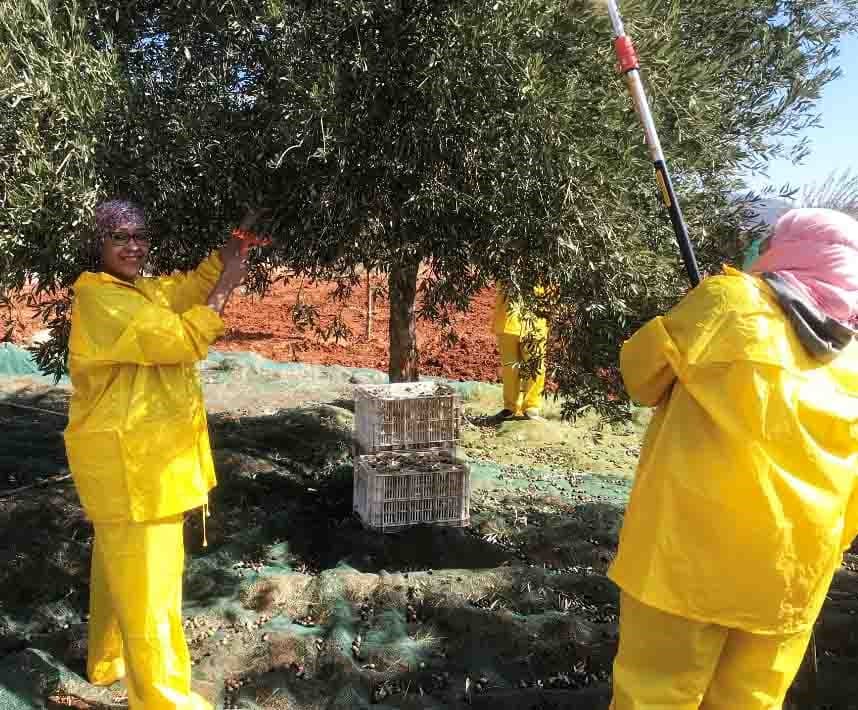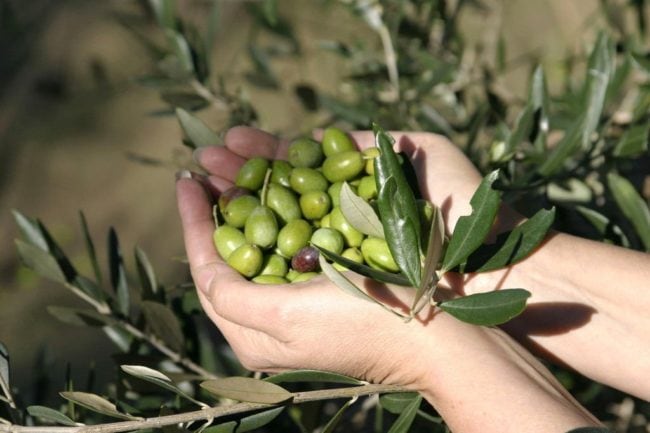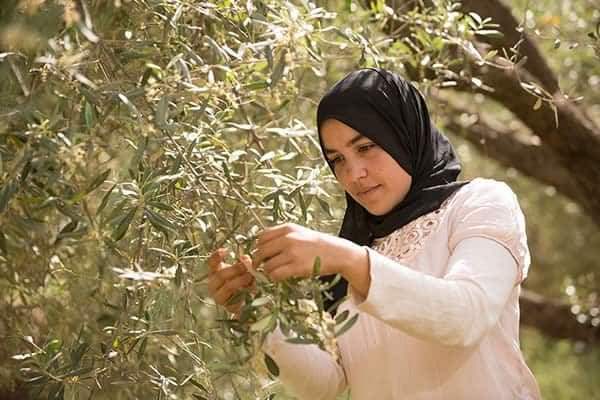Morocco Gold Sets New Standards Of Quality Extra Virgin Olive Oil Production
Updated October 3rd 2024

Summary
Contents
Quality Of Production In Extra Virgin Olive Oil Makes The Difference For Flavour And Health
Olive oil is not just a kitchen staple—it’s a liquid goldmine of flavor and health benefits. But what makes one bottle superior to another? The secret often lies in the process, specifically cold pressing and hand-picking. For foodies and health enthusiasts alike, understanding these methods can transform a simple cooking ingredient into an enriching culinary experience.
From the earliest days of introducing Morocco Gold as a premium quality extra virgin olive oil, our team have worked tirelessly to achieve one key goal: to consistently produce Moroccan extra virgin olive oil which sets new standards of authenticity and production from planting our olive trees right through to packaging and delivery.
Hand Picking of our olives and cold pressing are two of the most important elements in the production of Morocco Gold and contribute so much to the unique flavour and health benefits of the end product.
The exceptionally high quality of Morocco Gold extra virgin olive oil is the result of care and attention to detail throughout the entire production process but let’s dig a little deeper in to these two key features:
Why Is Handpicking Of Olives Important For The Best Olive Oil?
Hand-picking olives might sound like a labor-intensive task, but it’s crucial for creating the finest olive oils. This traditional method ensures that only the best olives make it into your bottle. Machines can’t discern between ripe and unripe fruit, but experienced hands can.
When olives are picked by hand, there’s minimal bruising and damage. Damaged olives can release enzymes that negatively affect the oil’s flavor and quality. By using gentle hands instead of harsh machinery, producers preserve the integrity of each olive.
Beyond quality, hand-picking also respects the trees themselves. Mechanical harvesting can be rough on delicate branches, potentially harming future crops. By treating each olive tree with care, producers ensure a sustained yield year after year, which is vital for maintaining a consistent supply of top-quality oil.

Olives from the Beni-Mellal region have been grown for centuries using traditional farming methods and are all handpicked during harvest time. This includes ground-work and tillage which is carried out once or twice a year.
The gorgeously picturesque area in the foothills of the Atlas Mountains where we source our fabulous extra virgin olive oil is hilly and the distribution of the olive trees preclude the use of the types of mechanized harvesting machinery that has caused such concern. This is why handpicked harvesting is of importance to the quality and the provenance of extra virgin olive oil.
Fruiting sizing and assessment of the maturity of the olive is carried out annually. The planned date of harvest is agreed based on the maturity of the olives, also the generations of experience of the olive farmers. Morocco Gold olives are hand-harvested early in the season when the fruit is young.
The handpicked harvesting is carried out using nets and tarpaulins which are placed on the ground to avoid contact between the olives and the ground.
By handpicking olives in this way, we are also protecting local wildlife. Many harvesters across Italy, Spain and France suck olives from trees using machines, and do this at night, which means sleeping birds who think they have found sanctuary in the olive branches are dazzled by the bright lights and sucked to their deaths.
Why Is Cold Pressing So Important For Extra Virgin Olive Oil?
Cold pressing is synonymous with high-quality extra virgin olive oil. This method involves crushing the olives at room temperature to extract their oil without the use of heat or chemicals. The result is a purer, more natural product.
The absence of heat is key. Heat can degrade the oil’s natural antioxidants and nutrients, which are vital for both flavor and health benefits. By keeping the process cold, producers preserve these essential compounds, resulting in a more nutritious oil.
Additionally, cold pressing maintains the oil’s vibrant color and rich aroma. These sensory qualities are often lost when heat is applied, robbing the oil of its character. A cold-pressed olive oil retains its natural essence, offering a taste that’s as close to the fresh olive as possible.
Cold Pressing is a common way to make extra virgin olive oil that removes the need for heat or chemicals. Morocco Gold is made exclusively from olives which are cold pressed within 24 hours of picking ensuring an incredibly rare, extra virgin olive oil of exceptional quality, extraordinary health benefits and a taste like none other.
Cold pressing involves crushing olives in to a paste, then applying force to separate the oil from the pulp. Strict European food standards dictate those temperatures cannot exceed 81 ̊F (27 ̊C) in order to be categorised as ‘cold pressed’. By using the cold pressing method, olive oil can better retain its nutritional value by avoid heat-induced break down of beneficial plant compounds (including Polyphenols).
A recent article from Healthline lists no fewer than 12 benefits and uses of cold pressed olive oil. These include the high numbers of nutrients, antioxidants and healthy fats – specifically oleic acid, omega-6 and omega-3 fatty acids.
According to Healthline, cold pressed extra virgin olive oil is:
Loaded with healthy fats, vitamins E and K, and several antioxidants and anti-inflammatory compounds. These nutrients may promote brain and heart health, in addition to other benefits. You many stand to gain the most if you use cold pressed olive oil in place of other fats, such as lard, butter or margarine.
Does Cold Pressing Improve Flavour Of Extra Virgin Olive Oil?
Flavor is where cold pressing truly shines. This method enhances the natural taste of extra virgin olive oil, making it a favorite among chefs and food lovers worldwide. When olives are pressed without heat, their unique flavors are preserved.
Cold pressing allows for a complex flavor profile that includes fruity, peppery, and even slightly bitter notes. These flavors are often more pronounced and distinguishable than in oils processed with heat, which can result in a flatter taste.
Furthermore, cold pressing can bring out subtle nuances in the oil’s flavor. Variations in climate, soil, and harvest time all contribute to a distinctive taste. By preserving these subtleties, cold pressing creates an olive oil that’s rich in character, perfect for both drizzling over salads and enhancing cooked dishes.

Here’s a reminder of just how many good reasons there are to buy a bottle of Morocco Gold:
- Each 500ml Bottle / 16.9 Fl Oz USA has an exceptionally low Acidity Level of 0.2% as well as the highest Polyphenols To Date: 644mg/kg
Morocco Gold is:
- A rare ultra-premium extra virgin olive oil from a new, undiscovered source.
- Simply the best Picholine Marocaine olives, selected early in the season, handpicked and cold pressed within 24 hours of picking.
- No mixing or blending with other oils to ensure genuine extra virgin olive oil quality.
- The end result is a ‘liquid gold‘: an incredibly rare, extra virgin olive oil of exceptional quality, extraordinary health benefits and a taste like none other.
- Multiple Gold award winner for its green fresh fruity taste, with hints of sweet almonds, fresh turf and herbs.
- Rich in health enhancing polyphenols, to deliver the many health benefits of a high-quality Extra Virgin olive oil.
Conclusion
In the world of olive oil, not all bottles are created equal. Cold pressing and hand-picking are the gold standards for producing high-quality extra virgin olive oil. These methods preserve the flavor, nutrients, and overall quality that foodies and health enthusiasts cherish. Next time you reach for a bottle, remember the craftsmanship that goes into creating this liquid gold. Whether you’re drizzling it on a salad or savoring it with bread, you’re enjoying the fruits of nature’s labor. Explore further by trying different varieties and sharing your experiences with fellow enthusiasts—you might just discover your new favorite flavor.
